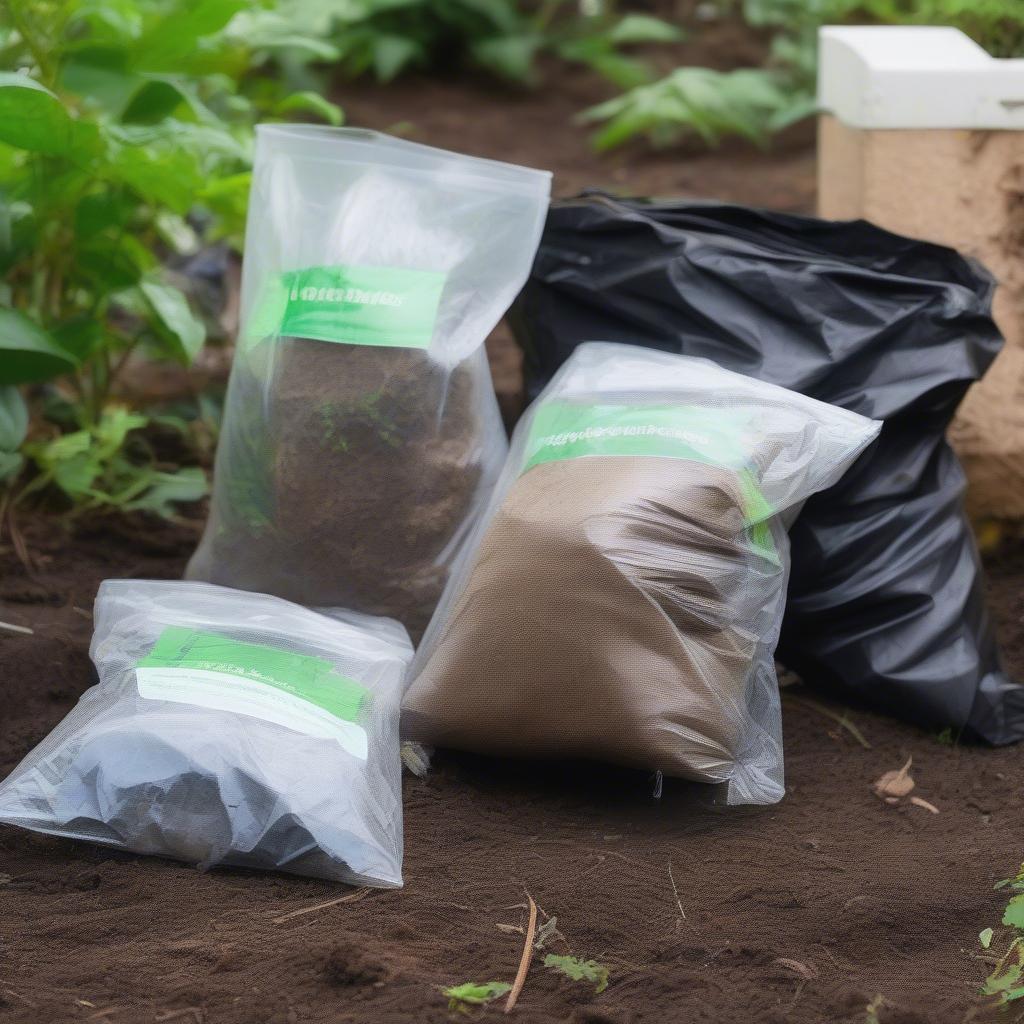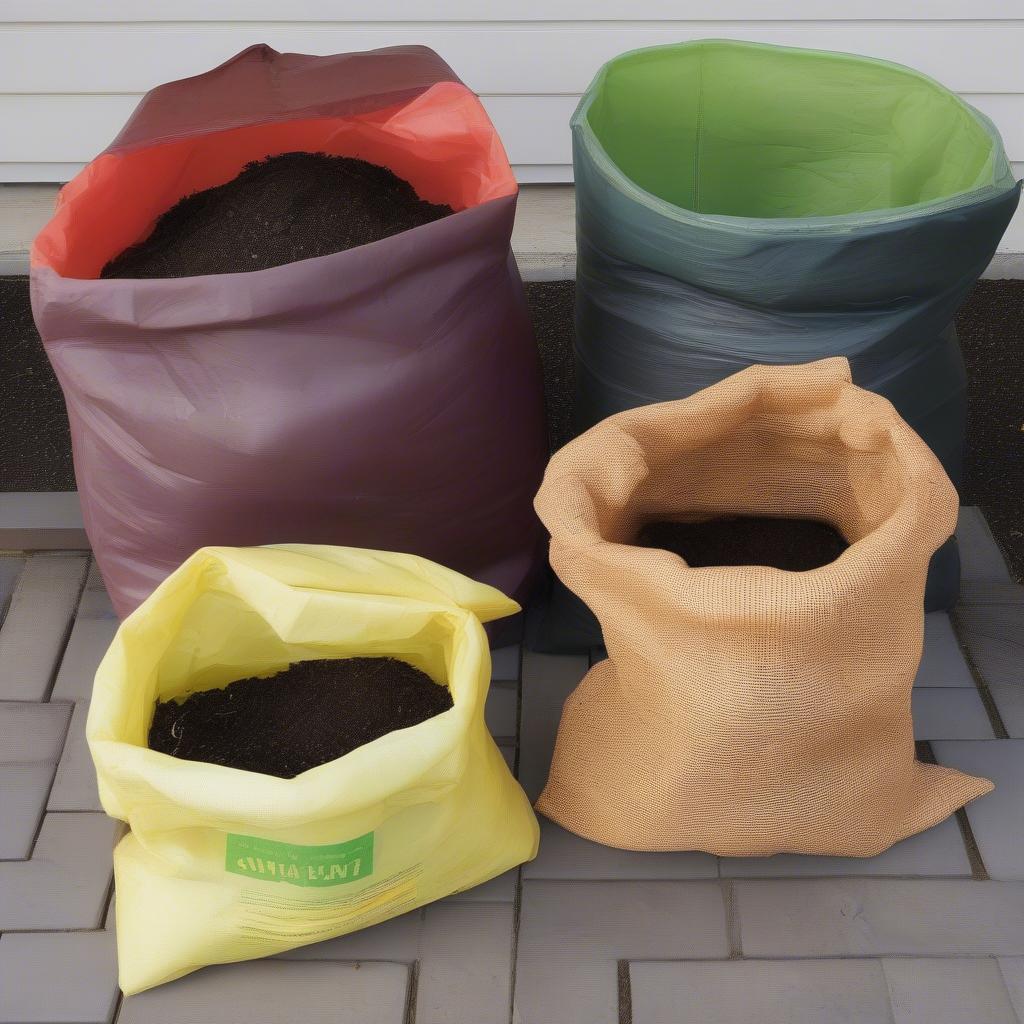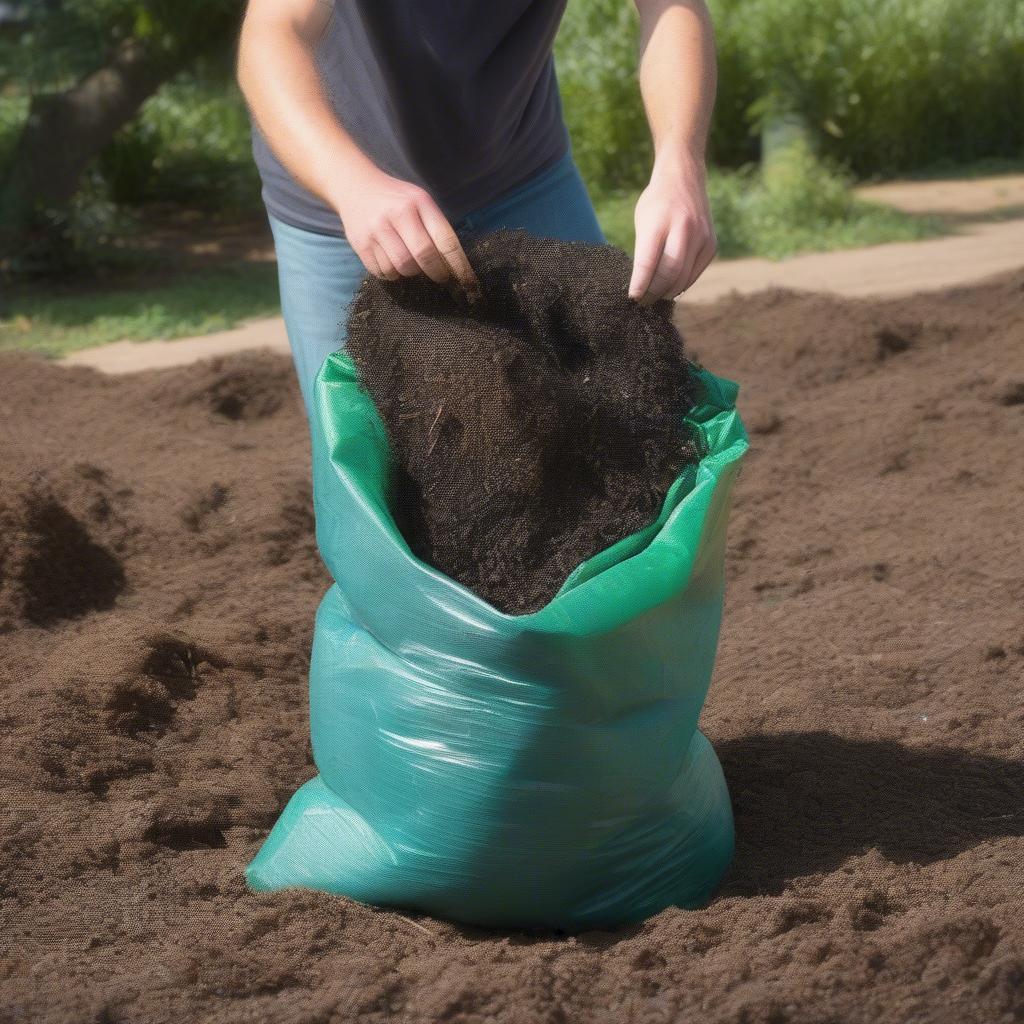Woven Bag
Using Woven Poly Bags for Storing Compost
Composting is a fantastic way to reduce waste and enrich your garden, and Using Woven Poly Bags For Storing Compost offers a practical and efficient solution. This article explores the benefits and considerations of using these versatile bags for your composting needs. We’ll delve into the advantages they offer over traditional composting methods and provide helpful tips for maximizing their effectiveness.
 Woven Poly Bags for Compost Storage
Woven Poly Bags for Compost Storage
Woven polypropylene bags, often referred to as woven poly bags, are a popular choice for storing compost due to their durability and breathability. Unlike plastic sheeting or bins, these bags allow for crucial air circulation, which promotes aerobic decomposition and prevents the build-up of anaerobic bacteria that can cause unpleasant odors. This airflow also helps regulate moisture levels, preventing the compost from becoming too soggy or dry. Furthermore, these bags are UV resistant, protecting the compost from the harmful effects of prolonged sun exposure. You might be interested in learning more about the pp woven bag material.
Why Choose Woven Poly Bags for Composting?
Using woven poly bags offers several advantages over other composting methods:
- Breathability: As mentioned earlier, the woven structure allows for excellent air circulation, promoting healthy compost development.
- Durability: These bags are made from strong polypropylene material, making them resistant to tearing and punctures. They can withstand the weight and pressure of the composting materials.
- Portability: Woven poly bags are lightweight and easy to move around, making it simple to relocate your compost pile or access the finished product.
- Space-saving: These bags can be easily stacked or stored when not in use, making them an ideal solution for smaller gardens or balconies.
- Cost-effective: Compared to other composting containers, woven poly bags are a relatively inexpensive option.
 Different Sizes of Woven Poly Bags for Composting
Different Sizes of Woven Poly Bags for Composting
What Size Woven Poly Bag Do I Need?
The size of the bag you choose depends on the amount of compost you anticipate producing. Smaller bags are suitable for kitchen waste or small gardens, while larger bags are better for larger volumes of yard waste.
How to Use Woven Poly Bags for Composting
Using woven poly bags for composting is straightforward:
- Choose a location: Select a well-drained area that receives partial sun.
- Prepare your materials: Gather your composting materials, such as kitchen scraps, yard waste, and brown materials like dried leaves or shredded paper.
- Fill the bag: Add your composting materials to the bag, layering brown and green materials as you go. For more specialized bags, you can check out wholesale 25kg pp woven fertilizer packaging bags.
- Moisten the contents: Water the compost regularly to keep it moist but not soggy.
- Turn the compost: Every few weeks, turn the compost by rolling or shaking the bag to aerate the contents.
- Monitor the temperature: A healthy compost pile will heat up. Monitor the temperature to ensure the composting process is progressing effectively.
 Turning Compost in a Woven Poly Bag
Turning Compost in a Woven Poly Bag
Tips for Success
- Avoid adding meat, dairy, or oily foods to your compost.
- Maintain a good balance of green and brown materials.
- Ensure adequate moisture levels.
- Turn the compost regularly.
- Consider the non woven bag industry for alternative storage options.
“Using woven poly bags provides a convenient and effective way to manage compost, especially for those with limited space,” says Jane Doe, a renowned gardening expert. “Their breathability is key for optimal decomposition.”
“The portability of these bags makes them a game-changer,” adds John Smith, an experienced composter. “I can easily move my compost around my garden as needed.”
In conclusion, using woven poly bags for storing compost is a practical, efficient, and cost-effective solution for both novice and experienced composters. Their breathability, durability, and portability make them an excellent choice for managing compost and creating nutrient-rich soil for your garden. Consider using a plastic woven laminated bag for added protection. Remember to choose the right size bag for your needs and follow the recommended composting practices for optimal results.
Are you ready to transform your garden waste into valuable compost? For more information about different woven bag applications, check out al faleh pp woven plastic bags industry llc sharjah.
If you need assistance, please contact us at Hanoi, Vietnam or Tech Avenue, Suite 12, San Francisco, CA 94105, USA. We have a 24/7 customer service team.
